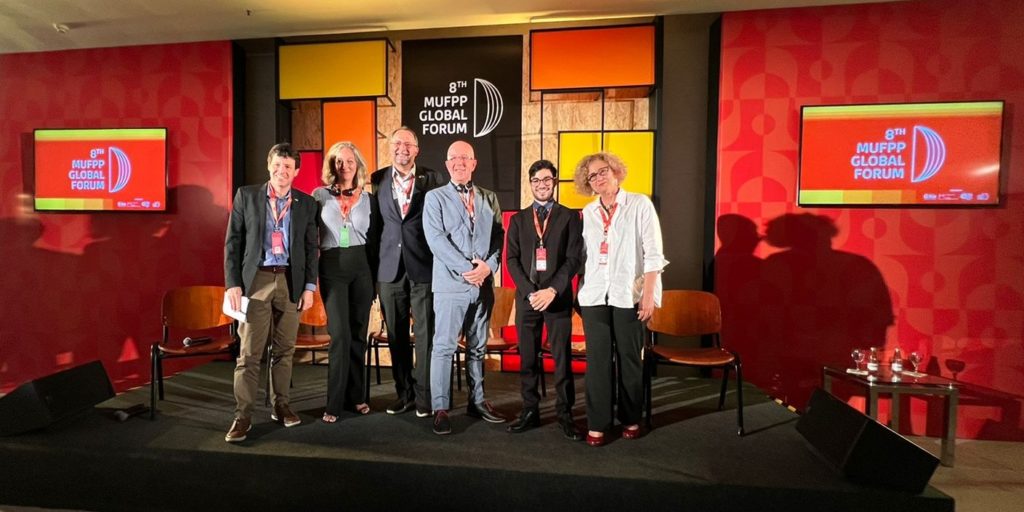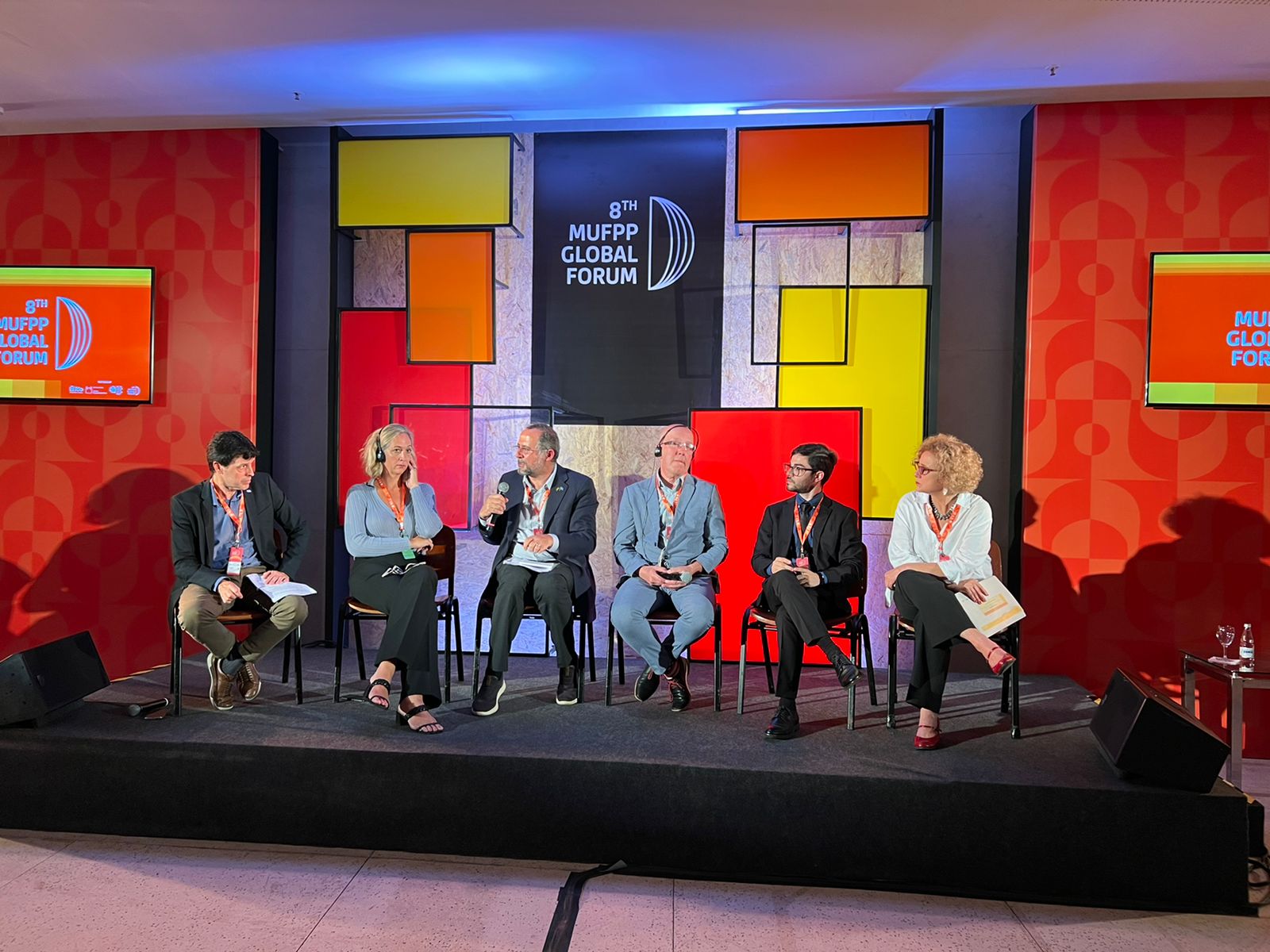Panel on school feeding was held within the framework of the 8th Global Forum of the Milan Pact on Urban Food Policy (8th MUFPP Global Forum), in Rio
Paulo Beraldo
Rio de Janeiro, October 18, 2022 – Civil society, different levels of local and national governments, parents, NGOs and students must mobilize and commit themselves for the best functioning of the multiple actions of the school feeding policy. This was the conclusion of the experts gathered at the panel “School Feeding: strengthening local food systems and the use of biodiversity”, held this Monday 17, as part of the actions of World Food Day 2022 and the 8th Global Forum of the Milan Pact on Urban Food Policy (8th MUFPP Global Forum).
The panel, held in Rio de Janeiro, was coordinated by the Food and Agriculture Organization of the United Nations (FAO) and Embrapa Alimentos e Territórios. Gustavo Porpino, an analyst at Embrapa Alimentos e Territórios, opened the ceremony by saying that there are “many school feeding practices that can be replicated even in different continents.” He added that the event is an opportunity to discuss strategies to improve school feeding programmes with the valorization of local production and greater use of local biodiversity.

Kate MacKenzie, executive director of the New York Department of Food Policy, said there are 16,000 schools in the city and about 1 million students, with around 500 recipes served. “Our potential to change food systems, predominantly with public procurement and education, is extraordinary,” she said. “It is necessary to make food consumption based on knowledge. Food education and consumption must be interconnected”. She concluded by highlighting the need to work together with all the actors interested in school feeding so that the policy can be improved.
Rafael Zavala, FAO Representative in Brazil, stated that school feeding can be a ‘game changer’ for agri-food systems. He mentioned the importance of schools to teach the value of food culture and local biodiversity with school meals. “We need to create healthy school environments, both in schools and at home.” He highlighted the importance of purchasing products from family farming to promote local territorial development. And he highlighted the need to monitor the menus offered, citing the case of the National School Feeding Programme (PNAE) of Brazil, which serves 41 million students daily.
One of the regional actions of the Brazil-FAO International Cooperation Programme is the project Consolidation of School Feeding Programmes in Latin America and the Caribbean, a partnership among FAO, the Brazilian Cooperation Agency (ABC/MRE) and the National Fund for Educational Development (FNDE), which support the countries of the region to strengthen and consolidate their school feeding policies to guarantee the human right to food. Also within the scope of this initiative is the Sustainable School Feeding Network, the RAES, which seeks to promote the exchange of knowledge and good practices in school feeding.
Bent Egberg Mikkelsen, a researcher at the University of Copenhagen, in Denmark, reported on the experience of working on food literacy in schools. He presented examples of how to bring food from canteens to classrooms, using food education as a pedagogical tool, bringing together areas such as the environment, digital technologies, sciences, arts and food. “We don’t want PowerPoint presentations, we want students to think, design, create and innovate,” he explained, citing the importance of engaging and motivating young people to influence the transformation of food systems in the future.
Harrison Freitas, business intelligence analyst at Sebrae Alagoas, spoke about the experience of training cooks, which allowed them to improve the quality of the school menu and increase purchases from family farmers, exceeding the 30% determined by the PNAE. The contest to empower cooks was created in 2019, and since then, more than 2,800 cooks and more than 50 nutritionists have seen their skills strengthened, impacting nearly 700 schools in 20 cities in Alagoas.
“I would like to highlight Maceió, the capital of Alagoas, which achieved a 41% share of family farming in PNAE public purchases.” Harrison affirmed that some recipes from the contest became part of the school menus, praising the joint work with partners such as Embrapa, Sebrae and Senac. And ended with the testimony of a cook who said that the contest made them “come out of anonymity and be recognized as true educators”
Francine Xavier, from the Instituto Comida do Amanhã, said that the presentations were important to think from food production to consumption and highlighted the importance of society and governments being mobilized and engaged in this cause. “We have the opportunity to have the PNAE, which is very powerful in including family farming, traditional peoples, promoting local development, circularity, and guaranteeing the human right to food. We are capable of transforming our society with this tool (school feeding policy).”
The panel was coordinated by Embrapa Alimentos e Territórios, with the support of Embrapa Agroindústria de Alimentos, Instituto Comida do Amanhã, Sebrae Alagoas and resources from the project Dom Hélder Câmara, coordinated by the Ministry of Agriculture, Livestock and Supply (Mapa) and the International Fund for Agricultural Development (IFAD).





